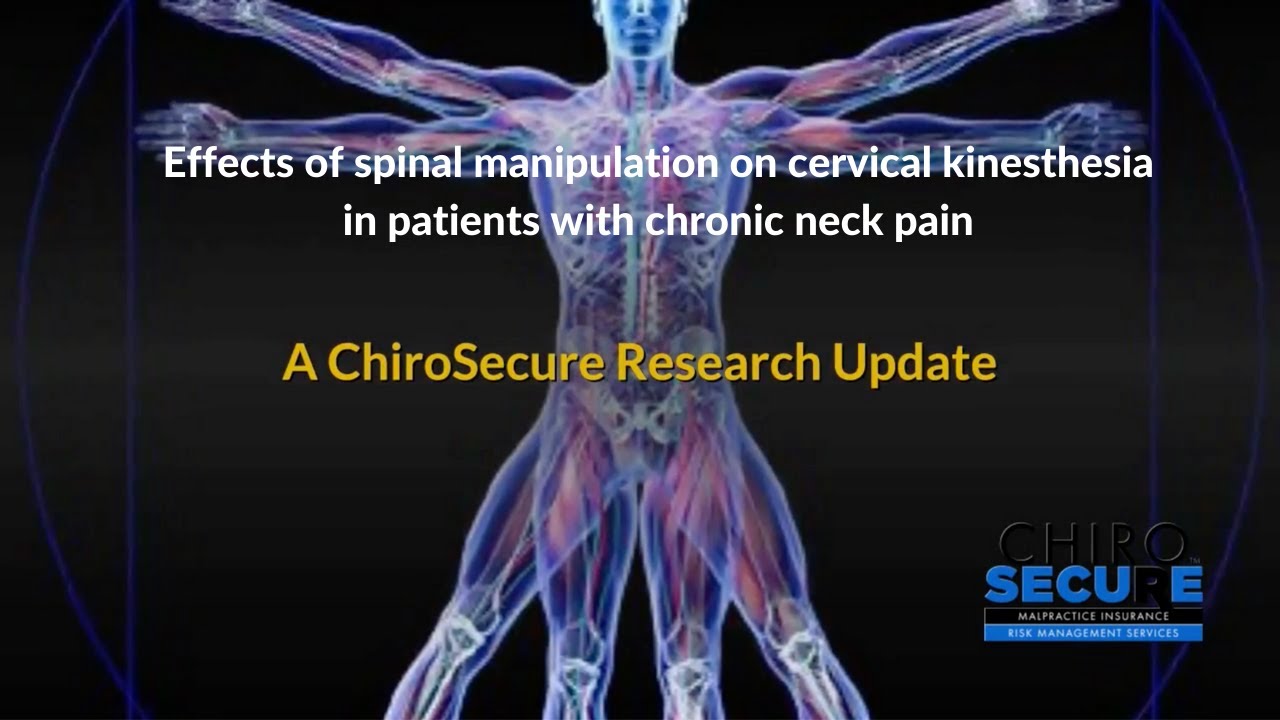Title:
The effects of spinal manipulation on cervical kinesthesia in patients with chronic neck pain: a pilot study
A ChiroSecure Research Update
Abstract:
To determine whether spinal manipulation as an isolated intervention has any effect on proprioception-dependent performance of subjects with chronic neck pain, compared with effects achieved through stretching exercises.
Discussion:
Twenty subjects with chronic (daily, > or = 4 months) neck pain. Volunteers were recruited from a pool of patients visiting the clinic or from those referred by informed clinicians.
Half of the subjects received six sessions of high-velocity, low-amplitude manipulation to the cervical and upper thoracic regions during a 3-4 wk period. The other half were instructed in stretching exercises for the cervicothoracic muscles, to be performed in two unsupervised sessions daily over the same time period.
Subjects receiving manipulation demonstrated a mean reduction in visual analogue scores of 44%, along with a 41% improvement in mean scores for the head repositioning skill. In comparison, a 9% mean reduction in visual analogue scores and a 12% improvement in head repositioning scores was observed for the stretching group. The difference in the outcomes of the head repositioning skill scores was significant (p < or = .05).
Conclusion:
The results suggest a possible effect of manipulation on proprioception in subjects with chronic neck pain. The small sample size, lack of true randomization and lack of blinding of the examiner are factors that weaken these findings. Larger, more controlled studies are needed to determine what specific effects manipulation may have on the function of proprioception.
Reference:
Rogers RG. The effects of spinal manipulation on cervical kinesthesia in patients with chronic neck pain: a pilot study. J Manipulative Physiol Ther. 1997 Feb;20(2):80-5. PMID: 9046455. https://pubmed.ncbi.nlm.nih.gov/9046455/






